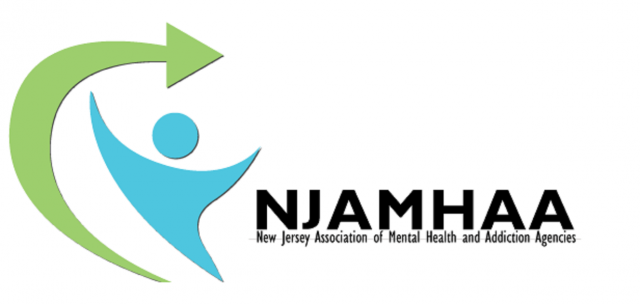January 17, 2023
The U.S. Department of Health and Human Services (HHS) has announced the 12th extension to the COVID-19 Public Health Emergency (PHE) through at least April 11, 2023. HHS has maintained that it will provide a 60-day notice to providers before the planned end of the PHE, which would be on February 10, 2023. Many of the telehealth flexibilities granted during the PHE were initially extended by the 2022 Consolidated Appropriations Act for an additional 151 days after the PHE ends, and subsequently extended until December 31, 2024 by the Omnibus Government Spending Package, which was passed late last month.
Many expect this to be HHS' final extension of the PHE. Jonathan Wiik, Vice President of Healthcare Insights at FinThrive, a healthcare revenue management company, was quoted on healthcarefinancenews.com saying, "I think this is the last one."
The Center for Connected Health Policy (CCHP), a nonprofit, nonpartisan organization working to maximize telehealth's ability to improve health outcomes, care delivery, and cost effectiveness, has shared a breakdown of which provisions will remain after the end of the PHE, and which will remain:
What stays permanently:
- Medicare reimbursement for eligible telehealth services when patients are located in geographically rural areas AND in eligible originating sites (i.e., in most cases, not their homes).
- Medicare reimbursement for mental health telehealth services (including audio-only services in some cases), provided that there is an in-person visit within the first six months of an initial telehealth visit and every 12 months thereafter (with certain exceptions). Implementation of this in-person requirement is delayed until Jan. 1, 2025. There is also an exception from the in-person requirement for substance use disorder treatment and a co-occurring mental health disorder and treatment for end stage renal disease.
- Medicare reimbursement to federally qualified health centers (FQHCs) and rural health clinics (RHCs), although it will no longer be billed the same or for 'telehealth' specifically for mental health services delivered via audio-only or live video. CMS has redefined a 'mental health visit' to now include encounters furnished through interactive, real-time telecommunications technology (which will include audio-only delivery in some cases) for mental health disorders.
What stays on a temporary basis until Dec. 31, 2024:
- Medicare reimbursement for telehealth services provided to patients at home, aside from certain exceptions.
- Medicare reimbursement for an expanded list of eligible providers, such as occupational therapists, physical therapists, speech language pathologists and audiologists.
- Medicare coverage of audio-only telehealth for non-mental health visits.
- Reimbursement of FQHCs and RHCs as distant site telehealth providers for non-mental health services. As noted above, FQHCs and RHCs will continue to be reimbursed for "interactive, real-time telecommunications technology" for mental health disorders, but these are not regarded as "telehealth" services for these entities.
- Reimbursement of Medicare telehealth services not included in Medicare's Categories 1, 2 or 3, will be allowed for a 151-day extension period (unless altered by CMS given the two-year extension of the other telehealth flexibilities) and will expire afterward. These include codes such as phone evaluation/management codes 99441-99443.
Available through the calendar year in which the PHE ends:
- Codes on Medicare's Category 3 telehealth list [see page 3-4 of CCHP's 2023 Physician Fee Schedule (PFS) factsheet for this list] will remain reimbursable through the end of the year in which the PHE ends, likely extending it to Dec. 31, 2023. Some of these codes may eventually be incorporated into Categories 1 (services similar to services already on the permanent telehealth list) or 2 (those for which there is sufficient evidence to show the services can be provided safely and effectively via telehealth), allowing for permanent Medicare reimbursement.
- Virtual presence for direct supervision is available through the end of the calendar year in which the PHE ends, though CMS continues to consider comments regarding this issue for potential future PFS rulemaking.
What goes right away:
- During the COVID public health emergency, the HHS Office for Civil Rights (OCR) applied enforcement discretion to telehealth providers, allowing them to utilize any non-public facing remote communication product, even if they don't fully comply with the requirements of the Health Insurance Portability and Accountability Act of 1996 (HIPAA). OCR has recently clarified in a FAQ document that the enforcement discretion will remain in effect until the Secretary of HHS declares that the PHE no longer exists, or upon the expiration date of the declared PHE. OCR will issue a notice to the public when it is no longer exercising its enforcement discretion.
- During the emergency, providers were able to prescribe controlled substances without conducting in-person examinations. This flexibility will expire with the end of the PHE, requiring providers to adhere to strict rules. In most cases, this will require a patient to be located in a doctor's office or hospital registered with the Drug Enforcement Agency to be prescribed a controlled substance via telehealth. As mentioned previously, a proposed rule would create an additional permanent exception for prescribing buprenorphine in an Opioid Treatment Program, but this has not yet been finalized.
Click here to read more on this stor



